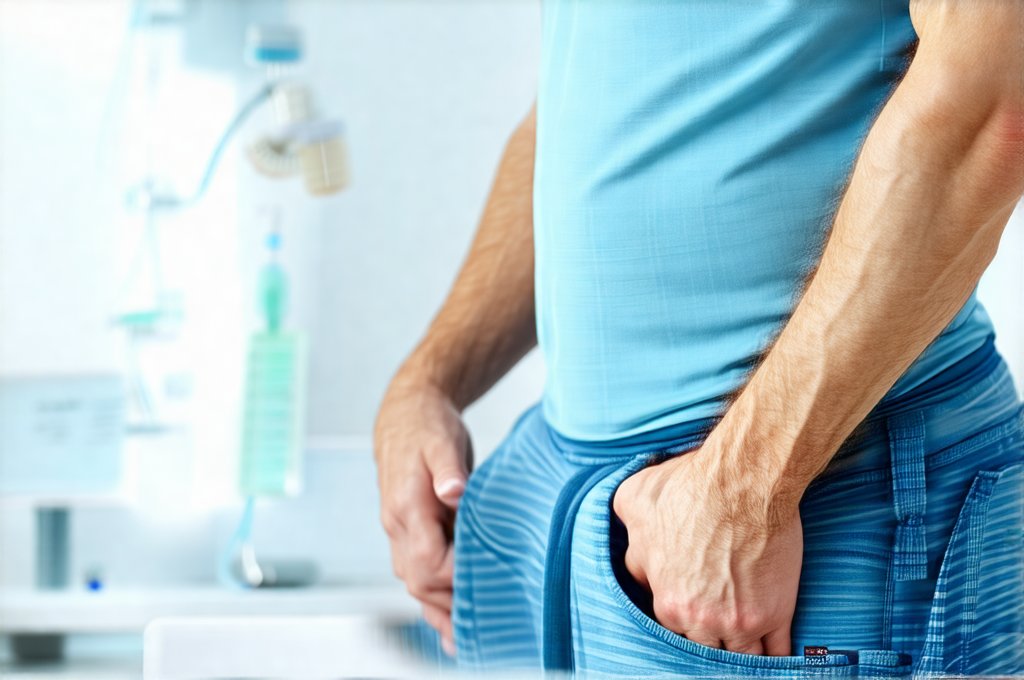
Urological wellness is deeply influenced by daily habits and long-term lifestyle choices. While genetics and age play roles in the development of urinary system disorders, many common conditions — such as urinary tract infections, kidney stones, benign prostatic hyperplasia, and bladder control issues — can often be prevented or managed through proactive, health-conscious behaviors.
Improving urological health doesn’t necessarily require drastic interventions. Small, sustainable adjustments in diet, physical activity, sleep, and stress management can yield meaningful results. This article explores the most effective lifestyle changes that support urinary system function and help reduce the risk of chronic urological conditions.
Physical Activity, Weight, and Pelvic Health
Regular movement and physical health maintenance are vital components of urological care. Sedentary behavior has been linked to an increased risk of bladder dysfunction, kidney problems, and lower urinary tract symptoms (LUTS).
- Stay active: Engage in at least 150 minutes of moderate-intensity aerobic activity each week. Exercise enhances circulation, reduces systemic inflammation, and supports hormonal balance, all of which benefit kidney and bladder function.
- Manage weight: Excess body weight, especially abdominal fat, increases intra-abdominal pressure, which can contribute to urinary incontinence and obstructive voiding symptoms.
- Strengthen the pelvic floor: Regular Kegel exercises strengthen the muscles responsible for urinary control. They are beneficial for both men and women, particularly after childbirth or prostate surgery.
- Avoid prolonged sitting: Take movement breaks every hour to reduce pelvic pressure and improve urinary flow.
These actions contribute to stronger bladder control, reduced pressure on pelvic organs, and better overall fluid regulation.
Hydration and Dietary Choices
Proper hydration and a balanced diet are foundational for urological health. The urinary system relies on fluid intake to flush out toxins, maintain electrolyte balance, and prevent stone formation.
- Drink enough water: Most adults need 6–8 glasses of water daily. Adjust based on climate, activity, and individual medical needs.
- Limit salt and animal protein: High sodium levels increase calcium in the urine, while excess animal protein can elevate uric acid, contributing to kidney stones.
- Eat more plants: A diet rich in fruits, vegetables, and whole grains provides fiber and antioxidants that reduce inflammation and support organ health.
- Reduce bladder irritants: Caffeine, alcohol, artificial sweeteners, and spicy foods can exacerbate urinary urgency or incontinence in sensitive individuals.
Personalizing diet based on your urological history — such as previous infections or kidney stones — helps prevent recurrence and improves long-term outcomes.
Stress, Sleep, and Mindful Habits
The connection between mental well-being and urological health is well established. Chronic stress and poor sleep patterns can worsen urinary symptoms and impair bladder function.
- Practice stress reduction: Techniques like mindfulness, meditation, yoga, and deep breathing can reduce overactive bladder symptoms and pelvic tension.
- Prioritize sleep: Aim for 7–9 hours of quality sleep per night. Sleep disruptions are linked to nocturia (nighttime urination) and hormonal imbalances.
- Establish a consistent routine: Go to bed and wake up at the same times daily. A stable circadian rhythm supports kidney hormone regulation and urinary consistency.
- Seek support: Mental health counseling can be beneficial for patients experiencing urological symptoms related to anxiety, depression, or trauma.
Long-Term Benefits and Proactive Monitoring
Making lifestyle improvements is not only about preventing disease — it also fosters better daily comfort, confidence, and quality of life. Regular monitoring and open communication with your healthcare provider are essential parts of this process.
- Schedule routine checkups: Early detection of changes in kidney function, prostate health, or bladder behavior allows for more effective treatment.
- Track symptoms: Keep a bladder diary or symptom log if dealing with recurring issues.
- Follow through on care plans: If you’ve been prescribed pelvic therapy, medications, or dietary adjustments, stay consistent for best results.
Ultimately, lifestyle choices are one of the most controllable factors in urological wellness. By embracing positive habits in movement, nutrition, hydration, rest, and mental well-being, individuals can build a strong foundation for lifelong urinary health.
Recent articles about healthy lifestyle
-

Evening Digital Detox Strategies That Promote Melatonin And Reduce Nocturia Risk
Our modern lives are deeply intertwined with digital technology. Smartphones, tablets, laptops – these devices have become indispensable tools for work, communication, and entertainment. While…
-

Pelvic-Friendly Core Strengthening Moves That Avoid Excess Intra-Abdominal Pressure
The core is often portrayed as the six-pack muscle region, but it’s so much more than aesthetics. It’s the foundation for movement, posture, and overall…
-

Mindful Transition Techniques From Work Mode To Rest Mode For Overnight Flow Stability
The modern world demands constant connectivity and productivity, blurring the lines between work and personal life. This perpetual “on” state can significantly disrupt our natural…
-

Sustainable Hydration Tracking Methods To Prevent Overconsumption-Related Urges
The relentless pursuit of optimal health often leads us down paths paved with good intentions, but sometimes misguided execution. Hydration is undeniably vital for bodily…
-

Natural Sun Exposure Breaks That Boost Vitamin D And Support Hormonal Urinary Health
Our modern lifestyles often keep us indoors, shielded from the very source of life – sunlight. This disconnect has far-reaching implications for our well-being, extending…
-

Breath-Synchronized Stretching Flows For Immediate Pelvic Floor De-Activation
The pelvic floor is often discussed in hushed tones, associated primarily with postpartum recovery or incontinence. However, it’s integral to everyone’s well-being – impacting posture,…
-

Structured Meal-Movement Pairings That Lower Postprandial Kidney Load
Postprandial kidney load – the stress placed on the kidneys after eating – is often overlooked in discussions about overall health and wellness. We frequently…
-

Daily Posture Awareness Drills To Support Prostate Comfort And Nerve Function
Prostate health is often discussed in terms of diet, exercise, and regular check-ups, but the significant role posture plays is frequently overlooked. Many men experience…
-

Weekend Activity Plans That Rebalance Circadian Rhythm And Restore Bladder Harmony
Our modern lives often demand relentless schedules, blurring the lines between work and rest. This constant pressure can significantly disrupt our natural biological rhythms –…
-

Ergonomic Workspace Tweaks That Reduce Abdominal Compression And Urinary Tension
Many individuals who spend prolonged periods sitting – particularly at desks for work – often experience discomfort related to abdominal pressure and urinary function. This…
Interested in how a healthy lifestyle supports urological health? Try the search feature.
